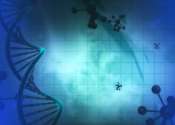Determining the timing of methanogen evolution
Early forms of life very likely had metabolisms that transformed the primordial Earth, such as initiating the carbon cycle and producing most of the planet's oxygen through photosynthesis. About 3.5 billion years ago, the ...







